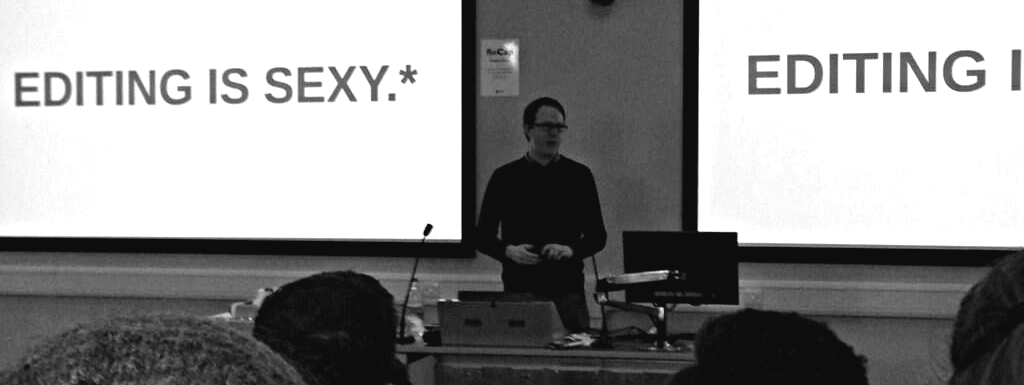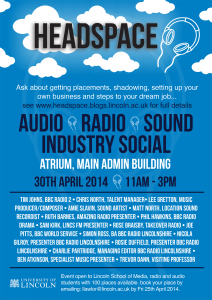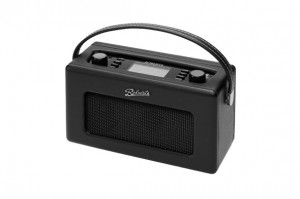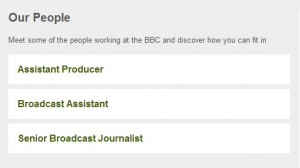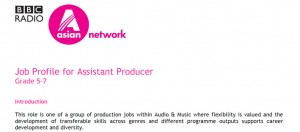There’s a new RadioCentre-commissioned report which says, according to Radio Today, that ‘Radio 1 and Radio 2 are failing’. RadioCentre is the industry body for commercial radio. The survey behind the report is independent. But I’m not so sure about this article, because it reads a bit like a RadioCentre press release: read the article here.
…according to independent research commissioned by RadioCentre…nearly half (46%) think that Radio 1 is the same, or only slightly different to Capital FM
In the name of accuracy you cannot lump these two things together. The phrases ‘the same’ and ‘slightly different’ are very different things. If 46% of all Radio 1 listeners think it’s ‘the same’ as Capital FM there’s perhaps a problem. However if 46% think it’s ‘slightly different’ then Radio 1 must be doing something right. Especially because presumably the remaining 54% think it’s ‘different’ or ‘very different’.
Whatever the breakdown within that 46%, the MAJORITY of those surveyed actually think Radio 1 is MORE than ‘slightly different’ to Capital FM.
Only 6% of its listeners associated the station with social action and documentaries and 25% with programming for young teenagers
Did the survey question ask people about the phrase ‘social action’? In which case I’m amazed anyone said ‘yes’ at all. It’s a not a phrase most people use. And surely only a small percentage of Radio 1’s output is ‘social action’, therefore if 6% of listeners know about it that doesn’t sound too bad. More than 25% of Radio 1’s audience is NOT ‘young teenagers’ therefore for 25% of those surveyed to ‘associate the station with programming for young teenagers’ is not surprising.
And although Radio 1 is supposed to be aimed at people aged 29 years and under, 30% of 35-44 think it is aimed at them
Or to put it another way: more than two thirds of Radio 1’s ‘older’ audience (35-44) acknowledge that the station is NOT aimed at them.
I don’t know about you but I think it’s amazing that two-thirds of people will admit that they probably shouldn’t be listening to the station they actually listen to.
On we go to Radio 2:
Radio 2 listeners wanted to hear less mainstream chart music (35%)
Isn’t the key finding that ‘65% of Radio 2 listeners are AT THE VERY LEAST ‘happy’ with the amount of mainstream chart music on the station’? Why report the minority, unsurprising comment, headlined as the main finding?
Of the specific service requirements for Radio 2, only 21% said they associated the station with extending musical tastes
‘Only’ 21%? For a station as ‘mainstream’ as Radio 2 I think it’s not such a bad thing that a fifth of people in this survey cite the station as a ‘taste-maker’. In the previous paragraph of the report we’re told that half of the audience ‘highly associate’ the music with Magic and Heart. Are we told what percentage of people think that Magic and Heart are taste-making? No. My guess is the result might be lower.
only…11% associated the station with original comedy and just 17% with arts programming
There’s that ‘only’ word again. Less than 11% of Radio 2’s output has anything to do with original comedy. Less than 17% of Radio 2’s output is what you’d define as ‘arts programming’. So, these figures sound pretty good. Why are they written up as a bad thing?
Siobhan Kenny, Chief Executive of RadioCentre, will unveil key findings from the research at a fringe meeting on the future of the BBC at the Conservative Party Conference today. In particular, she will call for tougher regulation of the BBC to help prioritise the delivery of public service output in future
Ah.
——-
Important caveats:
- I love Radio Today, even if not this article.
- A survey like this raises important questions about the BBC and these should be debated. Always. Here I’m discussing the way statistics are used to form ‘findings’.
- Disclosure: I work at Radio 2 and hey, I happen to like the BBC. However – this article is about the reporting of surveys, statistics and numbers. I’ve written previous similar articles on the same subject where I also slag off the BBC.









